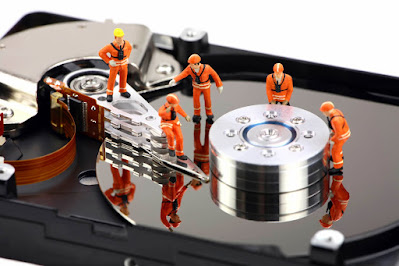EXCHANGE RECOVERY USEFULNESS


Large companies and industries take everything big. The consequences of a calamity can therefore often be called enormous.
Immense amounts of data, a vulnerability

Data
Loss, What Are The Consequences?
The lost data can be valuable or confidential in nature.
Processes can be disrupted or worse: entire companies can come to a standstill
as soon as the data is not sent, received or stored. Consider not only the
financial consequences of data loss, for example, but also the organizational
and long-term consequences. Contracts disappear, personnel files can be lost
and years of research have been destroyed. Database recovery is one of the
possibilities that Data recovery
is committed to.
98% data recovery score
Data recovery
has been rescuing data from long-lost media carriers for decades, large and
small, for consumers to large producers. In 98% of all data recovery cases, it can
recover the often valuable and precious data.
Try it yourself first? Pay attention
Data recovery is not always without risk and certainly not
if you try it yourself with data
recovery software. Before you start trying to retrieve data yourself,
consider: How important is the data and what is the risk if the recovery does
not work completely or even goes wrong?
Tape
Recovery
Of course, a tape is not infallible. Magnetic fields,
moisture and other conditions can damage storage media. Therefore specializes
not only in “broken” hard disks, but in data recovery from multiple types of
storage media.
A
Few Tips and Points of Attention
§ Never
store your data on a single media carrier.
§ Make
multiple copies on different types of storage media and keep these media
carriers in different locations.
§ Take
care of your media carrier, make sure, for example, that your external media
does not run the risk of falling off a table.
§ After
you have made a backup, check whether it was actually successful.
§ Do not
leave your external media carrier on 24/7, turn off the external media and
unplug the unit when you no longer need it.
§ Do not
disconnect the external storage media while it is still in operation, wait
until the external storage media is no longer active.
§ When
installing an operating system, always make sure your external drive is
disconnected from your computer, as you may accidentally install it on the wrong
hard drive.
§ Do not
place your external storage media in an enclosed, damp or dusty space, but in a
safe place with good ventilation.
§ Replace
your media carrier regularly, for example every three years (standard
depreciation period of devices within organizations).
§ Use
Compact Flash drives such as USB sticks only as a means of transport of data
and not as a backup.
Comments
Post a Comment